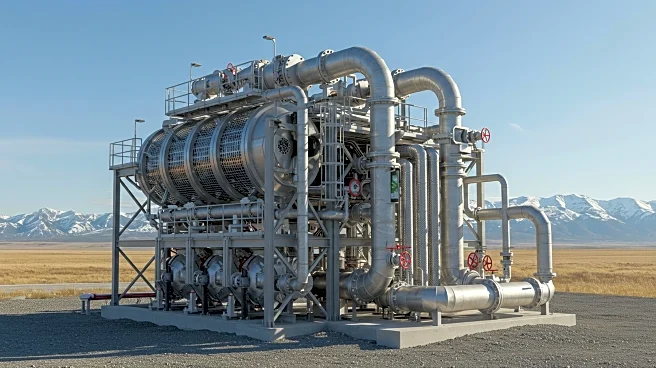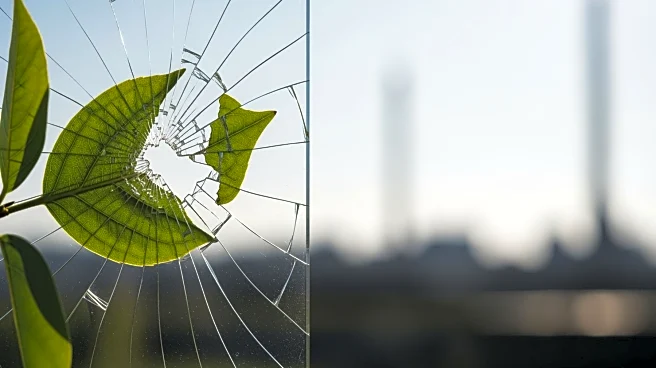What's Happening?
Montréal-based cleantech startup Deep Sky has launched its pilot carbon-capture facility, Deep Sky Alpha, in Innisfail, Alberta. The facility, powered by solar energy, aims to capture 3,000 tonnes of CO2 from the atmosphere by the end of the year. Founded by Hopper co-founders Frederic Lalonde and Joost Ouwerkerk, Deep Sky plans to monetize this technology through the sale of carbon credits. Companies like Microsoft and the Royal Bank of Canada have already purchased credits for 10,000 tonnes of stored CO2 over a decade. The site will test and validate various direct air capture (DAC) technologies from companies such as Québec-based Skyrenu Technologies and British firms Airhive and Mission Zero Technologies.
Why It's Important?
The launch of Deep Sky's carbon-capture facility represents a significant step in addressing climate change by reducing fossil-fuel emissions. By capturing CO2 directly from the atmosphere, the facility contributes to global efforts to mitigate climate change impacts. The sale of carbon credits provides a financial incentive for companies to invest in sustainable practices, potentially leading to broader adoption of carbon capture technologies. With substantial funding, including a $40-million USD grant from Bill Gates' Breakthrough Energy Catalyst, Deep Sky is positioned to influence the cleantech industry and promote environmental sustainability.
What's Next?
Deep Sky plans to continue testing and validating DAC technologies at the facility, which could lead to advancements in carbon capture efficiency and scalability. The success of this pilot project may encourage further investment and development in carbon capture solutions, potentially expanding the market for carbon credits. As more companies seek to reduce their carbon footprint, the demand for such technologies is likely to grow, driving innovation and collaboration within the cleantech sector.








